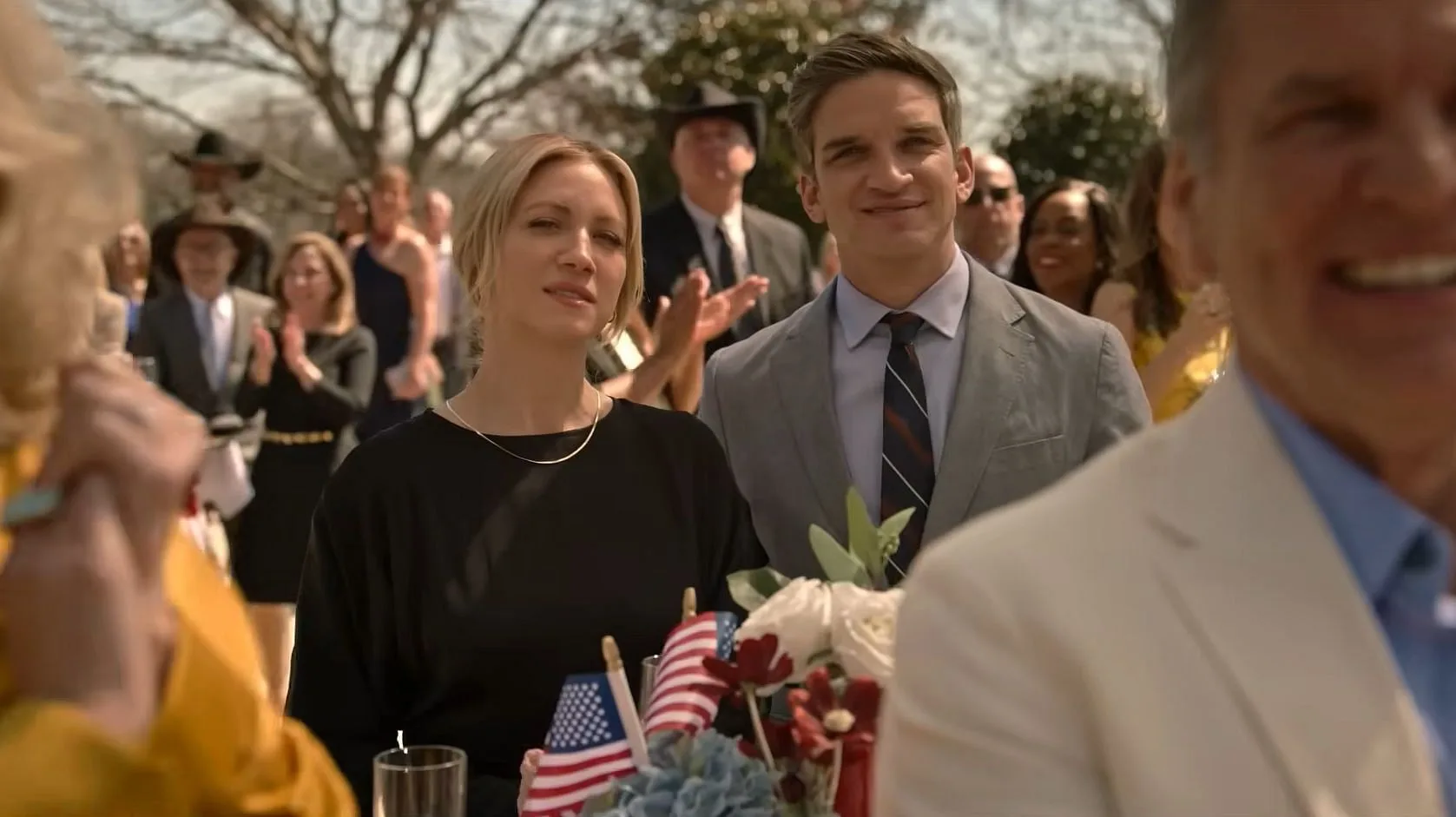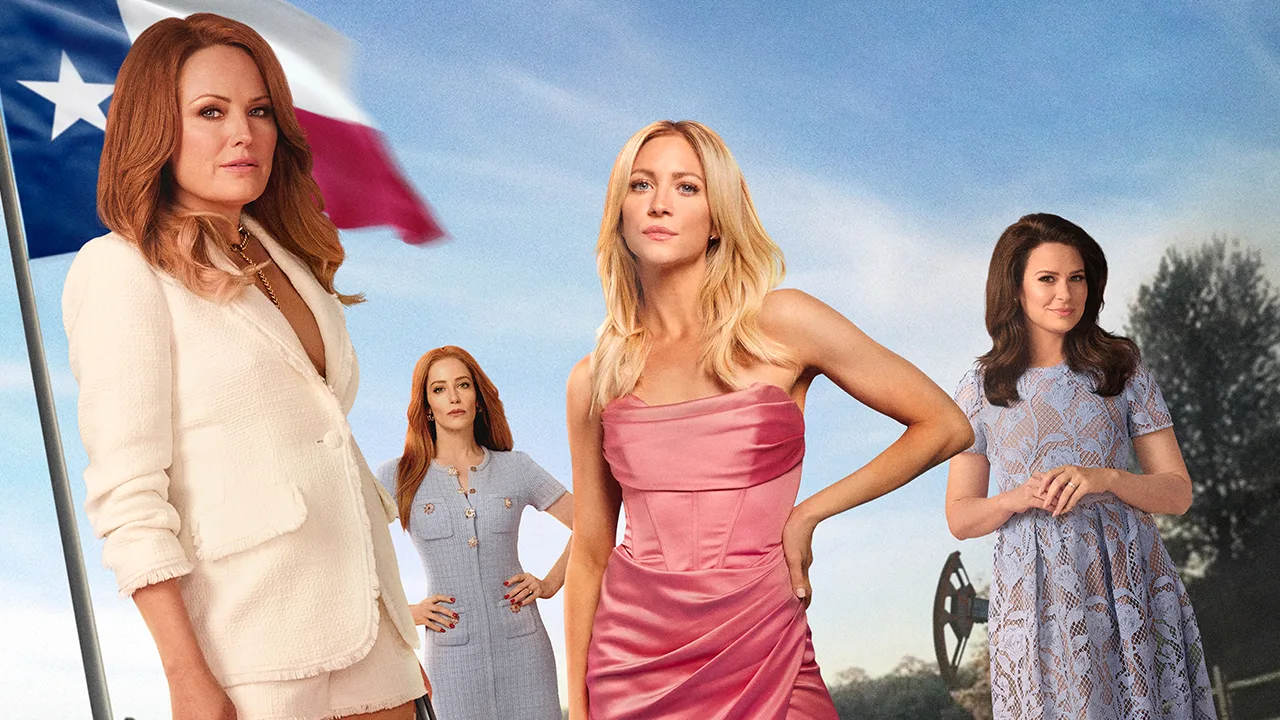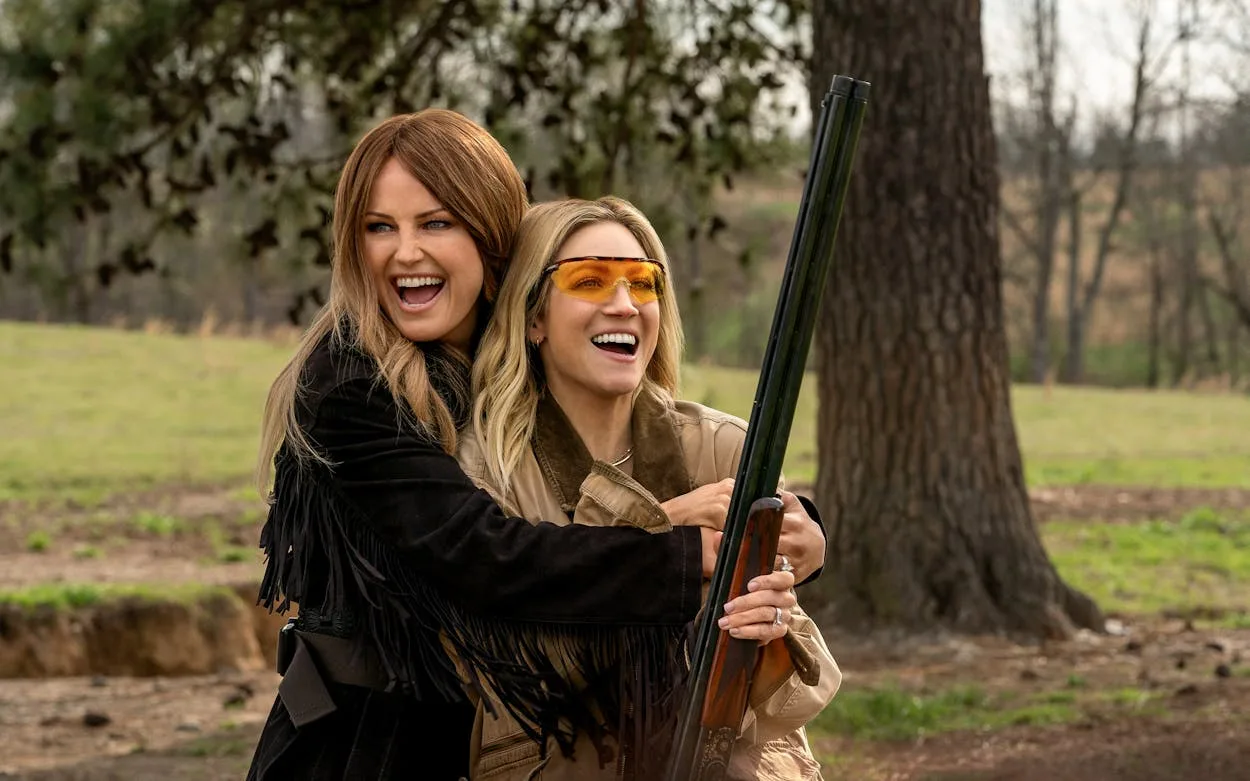Though I have spent most of my life in America as a Texas resident, I have yet to see a series that truly taps into the madness of the place. The rampant, unrepentant hypocrisy is a given, but so is the inconsistency of most people’s social and philosophical leanings. The same man who will happily, politely rescue you from a highway ditch in the aftermath of a car accident, and refuse any payment or even thanks in return—something that actually happened to my family—will also bear bumper stickers on his truck that make clear his allegiance to his AK-47 and his hatred of abortion rights. Someday, someone will make a film or TV show that captures the profound strangeness of Texas, but that day, sadly, is not today.
Based on Texas native May Cobb’s novel of the same name, “The Hunting Wives” is set in the fictional wealthy town of Maple Brook, Texas, to which Sophie O’Neil (Brittany Snow) has just moved with her architect husband Graham (Evan Jonigkeit) and seven-year-old son Jack (Emmet Moss). Sophie and Graham hail from Cambridge, Massachusetts (“Where Harvard is,” they add sheepishly, when new friends stare blankly hearing the city’s name).

While Graham keeps busy building the headquarters of an oil company led by state governor-aspirant Jed Banks (Dermot Mulroney, doing a damn good job capturing the testosterone-charged obnoxiousness of rich oilmen), his anxiety-ridden wife, who gave up her career in public relations for political campaigns when she gave birth, struggles to cope with her new surroundings and its even more alien social circle. Maple Brook is run with steely, cowboy booted cattiness by wealthy housewives, never an eyelash out of place, who donate six figures to the local megachurch as easily as they flirt with 18-year-old high school jocks, and conduct lavish NRA fundraisers at their mansions. With enthusiasm that is both confident and casual, they organize shopping trips to the local (Chekhov’s) gun emporium like they’re putting gas in their SUVs. In contrast, Sophie struggles with an anxiety disorder and, as per her husband’s request after a DUI in her past, no longer drinks or drives. But that won’t last long.
Leading the charge for Sophie to embrace a looser, more hedonistic life is the queen bee of Maple Brook, Margot Banks (Malin Akerman), Jed’s second wife, who works overtime to keep a tight, heavy lid on her sketchy past and her present dalliances. Her casual yet undeniable magnetism hooks Sophie upon their first meeting. Margot’s attire (lots of cleavage, tight in all the right places), her charm, her slow but steady persuasion entices Sophie into everything she hasn’t touched for years. Downing whiskey and doing donuts in empty parking lots gives Sophie a new lease on life, though her jitters make her oblivious to the shifting dynamics in the friend group, including the obvious jealousy of Margot’s best friend Callie (Jaime Ray Newman).
Rounding out the cast is Jill (Katie Lowes), the reverend’s wife, whose perfect veneer is stress-tested regularly by her husband’s coldness at home and the rash behavior (i.e., premarital sex with his wrong-side-of-the-tracks girlfriend Abby) of her Baylor-bound basketball player son Brad (George Ferrier), with whom she shares a deeply creepy relationship. And though everyone’s story is being told in flashback, in present day the body of a murdered woman has been found in the woods. Whoever could it be?!

To give credit where credit is due, at least Mulroney and Akerman are having a good time, with mostly solid accent work, making the best of the wobbly writing. Costume designer Heidi Higginbotham has a decent eye for differentiating the women on the show: thrifted items for Ashley and her mother Starr (Chrissy Metz), cowboy boots of various shades and textures for the cast depending on class and personality. Her arc for Sophie’s attire is quite good, if a bit predictable: conservative dresses, blouses, and pants in white, black, or cream eventually morph, as does Sophie, into frocks in eye-catching colors and lower necklines. Just about every other creative choice, however, is a snooze. Snow’s performance is too brittle, too slight to make a splash; Jonigkeit receives no characterization whatsoever (a shame, since he’s capable of much more, as he proved in Netflix’s dearly departed “Archive 81”); and the writing, photography, and direction are as stale as the four-day-old brioche on my kitchen counter.
Sometimes I feel as though I’m beating a dead horse in my reviews, but it really is true: “The Hunting Wives” is the latest mediocre drivel being pushed down the audience’s throat in the name of art. Showrunner Rebecca Cutter, in her email to critics, calls the series “good soapy fun, and I really don’t think there’s an existing comp for it.” I politely beg to differ. “Grosse Pointe Garden Society” covered similar ground, as did, once upon a time, “Desperate Housewives.” Transposing the action to East Texas could provide fertile ground for exploring the psyche of the Southwest, but the writing simply does not bother. And of the three episodes I was permitted to watch, none really stood out as good fun either. Soapy, sure, but “Why Women Kill” was better at this game and showed off Janie Bryant’s sublime costume work to boot.
Deep inside the sorry morass of dialogue and even weaker direction, is a compelling tale about how liberal white women can be seduced by conservatism. It doesn’t take much for Sophie to find salvation, freedom from her guilt in the endless parade of chic concealed weapons, megachurch-sourced redemption, snorted Xanax, and $25,000 bottles of whiskey. Apparently, the book does not engender sympathy for Sophie as readily as the series does; in the novel, her idle hands, the result of being a stay-at-home parent for the first time in her adult life, drive her obsession with Margot and her friends. But the TV show is far less nuanced, and Sophie is merely a lamb led astray. And a forgettable one at that.
Three episodes screened for review. Now on Netflix.












